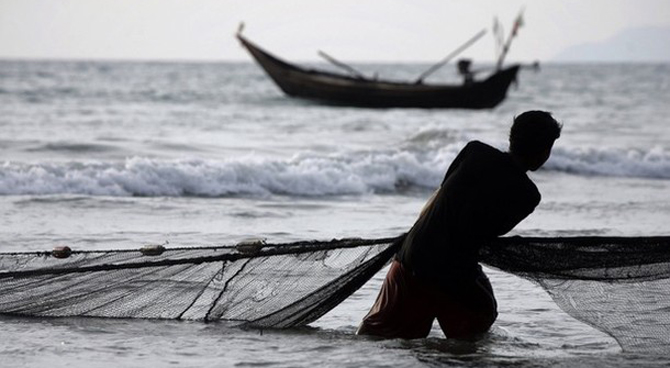Dawei Power Plant Canceled

Burma's Minister of Electrical Power No. 2 Khin Maung Soe has announced that the construction of a 4,000 MW coal-fired power plant in the Dawei Special Economic Zone is to be canceled.
The planned power plant was intended to supply electricity to a multi-billion dollar industrial zone under construction 20 km off the southern Burmese port of Dawei, also known as Tavoy, in Tenasserim Division.
Khin Maung Soe said that the government is considering building a smaller plant with an output of only 400 MW instead.
He made his statement at a press conference in Rangoon on Monday, reasoning that the government learned of the potential environmental impact of the power plant through media reports.
He added that activists had been exaggerating the impact and that a Chinese impact assessment study has shown that the “coal-power plant will be safe enough.”
The cancellation of the power plant comes a mere hundred days after the government suspended the construction of the Myitsone Dam, a US $3.6 billion Chinese-financed project, following a public outcry over the dam’s environmental impact.
The suspension of the megadam project caused a rift between members of the former military junta and Beijing, leading to Chinese analysts to question the investment potential of Burma as it undergoes political reform.
The environmental impact of the Dawei project has been a controversial issue since the project's announcement in December 2010.
The rebel Karen National Union, which is largely in control of the area around Dawei, reportedly impeded further road construction for the last three months citing environmental concerns and the displacement of thousands of local residents. In response, the Burmese army increased its presence in the area to potentially stave off growing local concerns.
Thailand's largest construction firm, the Italian-Thai Development Company (ITD), was in 2010 granted concessions by the Burmese government to develop a deep-sea port, a shipbuilding yard, an oil refinery, a petrochemical plant, a steel-making plant, a fertilizer production plant and the power plant, and was allocated a pristine littoral area of some 250 square kilometers as a base for its operations.
An initial estimate of the project stated an expected investment to be $58 million, including rail, road and pipeline links to Thailand and China, all to be completed by 2014.
The Burmese government granted ITD 75-year concessions for heavy industry, and 40-years concessions for light industry, along with preferential tax treatment.
The new infrastructure would dramatically shorten energy supply routes to Thailand and—alongside infrastructure projects in Thailand—potentially turn the region into a trade hub in the Andaman Sea for China and Southeast Asian countries, avoiding the congested and much longer route around the Malacca Straits.
For Thailand, the Dawei project is part of a strategy to export polluting industries abroad. “Thailand will move away from heavy industries such as petrochemicals and leave them to neighboring countries,” the vice-chairman of Thai Industries, Tanit Sorat, was quoted as saying last week by the Bangkok Post.
The cancellation of the power plant comes three days ahead of the arrival in Burma of the Japanese Economy, Trade and Industry Minister Yukio Edano.
The Japan Bank of International Cooperation has been in talks with ITD on providing the funding for port and road development in Dawei. Japan has been actively pushing for and providing funding for the development of a “Southern Corridor” transport route from Burma to Vietnamese ports.
Last Saturday, a Thai super-delegation—comprising the ministers of foreign affairs, finance, industry, energy and transport—visited Dawei, reaffirming Thai intentions of going through with the project despite the local opposition to it.
They were handed an open letter by a local grassroots group called the Dawei Development Association expressing “concern that our religion and culture and livelihoods will be affected” by the project.
“We are concerned we will lose our well-established livelihoods and have to start new lives should thousands of us be relocated," the group’s letter said.
Burmese army chief Gen. Min Aung Hlaing met with Thai Minister of Defence Yutthasak Sasiprapha in Bangkok to discuss the opening of new border checkpoints near Dawei on the same day as the announcement of the cancellation of the power plant.
ITD was not aware of the cancellation of the project, company representative Thin Aung told the AFP yesterday.
1 | 2 next page »
|
||
|
||
|
||
|
||
|
||
|
||
- 'My Wife Died From Police Abuse,' Says Husband
- US Says Observer Conditions Don't Meet Int'l Standards
- 159 Observers to Monitor Burma Election
- Govt to Address Breaches of SSA-South Ceasefire: Aung Min
- Burma Investors Pin Hopes on Seminal Sunday
- Malaysia PM Leads 50-Strong Delegation to Burma
- US Congress to Assess Burma's Political Prisoner Issue
- Rangoon Woman in Police Station Death Plunge
- Burmese Legal System Remains Tool of Govt: AHRC
- Burmese Army Chief Defends Political Role
